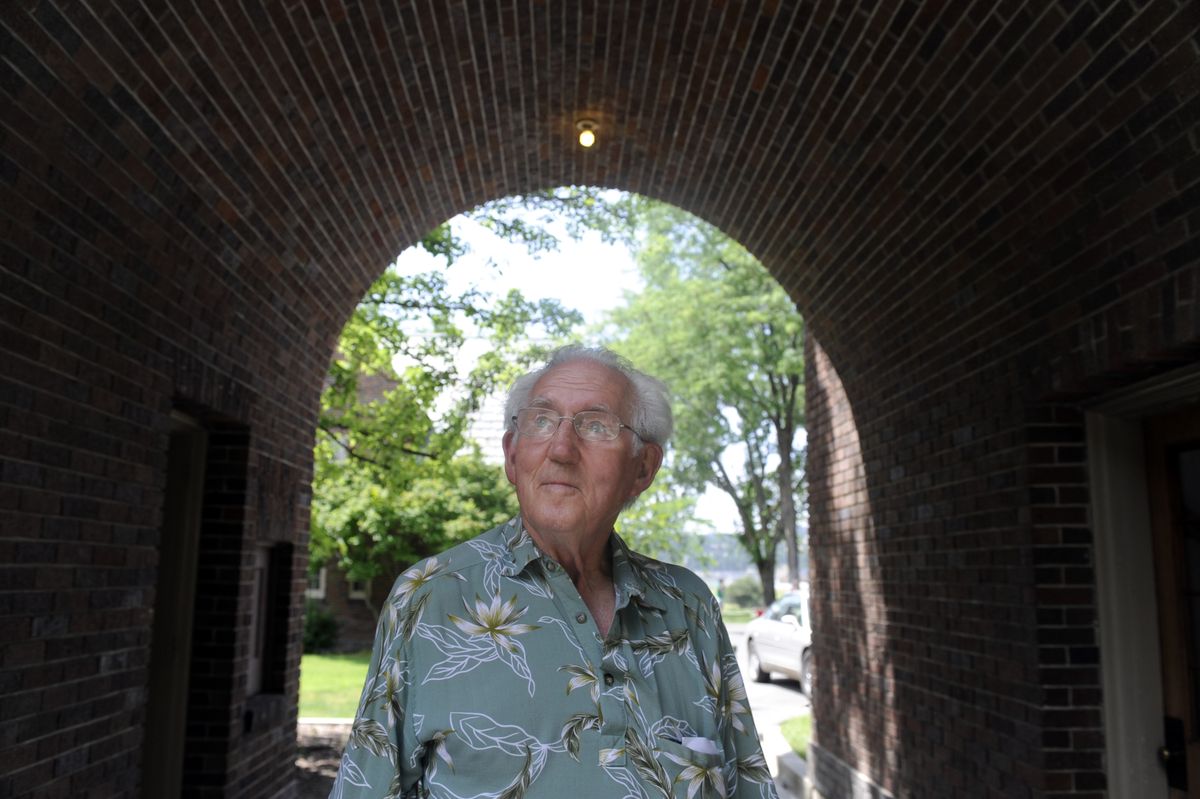Still the right place, right time
Hutton Settlement formative for children for 90 years

Hutton Settlement remains as stable as the brick cottages where its 32 children live, family-style.
This weekend, Hutton, a unique home for displaced children, celebrated 90 years of resilience. Alumni, residents, staf, board members and guest of honor Ryan Crocker, former U.S. ambassador to Iraq, ate barbecue and told stories.
“Over the years, many powerful companies and institutions have collapsed, but Hutton Settlement stands strong and vibrates with energy and life,” said Janet Goebel, Hutton board president.
In its 90 years, 1,300 children have called Hutton home. These children lost their parents to death, or their parents were lost to them through poverty, addiction or dysfunction.
From the beginning, one man’s vision has guided Hutton. Levi Hutton, who grew up an orphan, made a fortune in the Silver Valley in the early 1900s. He and his wife, May Arkwright Hutton, had no children of their own. After his wife died, Hutton healed his broken heart by creating a “special place to live” for children.
In 1924, Crocker’s mother, Carol McClure, became one of these children, along with her brothers.
“Their parents, who had just moved the family from Montana, were killed in a train accident in Millwood,” Crocker explained to those gathered for the anniversary celebration.
Hutton was a working farm then, and Crocker’s mother helped weed the fields. Later, she told her son: “A higher education will keep you from weeding fields.”
At picnics Friday and Saturday, alumni gathered in the shade of campus trees and reflected on the ways the settlement stabilized their lives.
Ruthie Hunt, 29, of Hayden, sat with Amber McConnell, 30. They both lived at Hutton in the 1990s. Hunt was there because she had been tossed about in the foster care system. McConnell was there due to “a family situation.”
Hunt’s three small children played on the grass and climbed trees as the women chatted.
“When I was here, I was grounded a lot of the time because I got bad grades,” Hunt said. “Now, as a mom, I can teach my kids how to do well in school.”
McConnell loved school, but until she came to Hutton, no one encouraged her. “We had clear rewards here,” she said. She is studying for her doctoral degree in chemistry at the University of Utah.
The women laughed remembering how their dates had to pass background checks. They didn’t appreciate the boundaries then, but the boundaries allowed them to find success as adults.
“I would not be in a Ph.D. program were it not for Hutton,” McConnell said.
A resident from a different era, Bob Baker, 83, sat in the settlement’s library and shared his story.
He was one of nine children and grew up on a ranch east of Colville. His mother died of phlebitis when Baker was 4; by the time he was 7, Baker’s father had died, too, of typhoid fever.
Baker lived at Hutton from 1935 to 1942, served in World War II, and afterward built a successful Spokane business, Custom Glass. In his retirement years, he gives back to Hutton in time and resources.
“The training I had here taught me how to work, how to get along with other people and really gave us a lot of stability,” he said. “We were right in the middle of the Depression, and we always were well fed, but we had to work. I milked cows at 4 in the morning and 4 at night.”
Hutton’s current residents mingled with the weekend guests, giving tours and sharing stories. Crocker told the young people that the toughness they acquired in their early lives before Hutton, combined with the service and education emphasis at Hutton, will allow them to “walk off this campus and do anything.”
Ericka, 13, intends to walk off the Hutton campus at 18 and attend Stanford University. Ultimately, she hopes to become a pediatrician, because “I don’t like when kids are sick.”
“There are days when I’m like, ‘I’m not going to make it until I’m 18 here,’ but hearing (alumni) stories, it’s like we all have our bumps in the road here, and everybody helps you get through them,” Ericka said. “One of my favorite phrases here is ‘All it takes is all you’ve got.’ Living here, you have endless possibilities.”